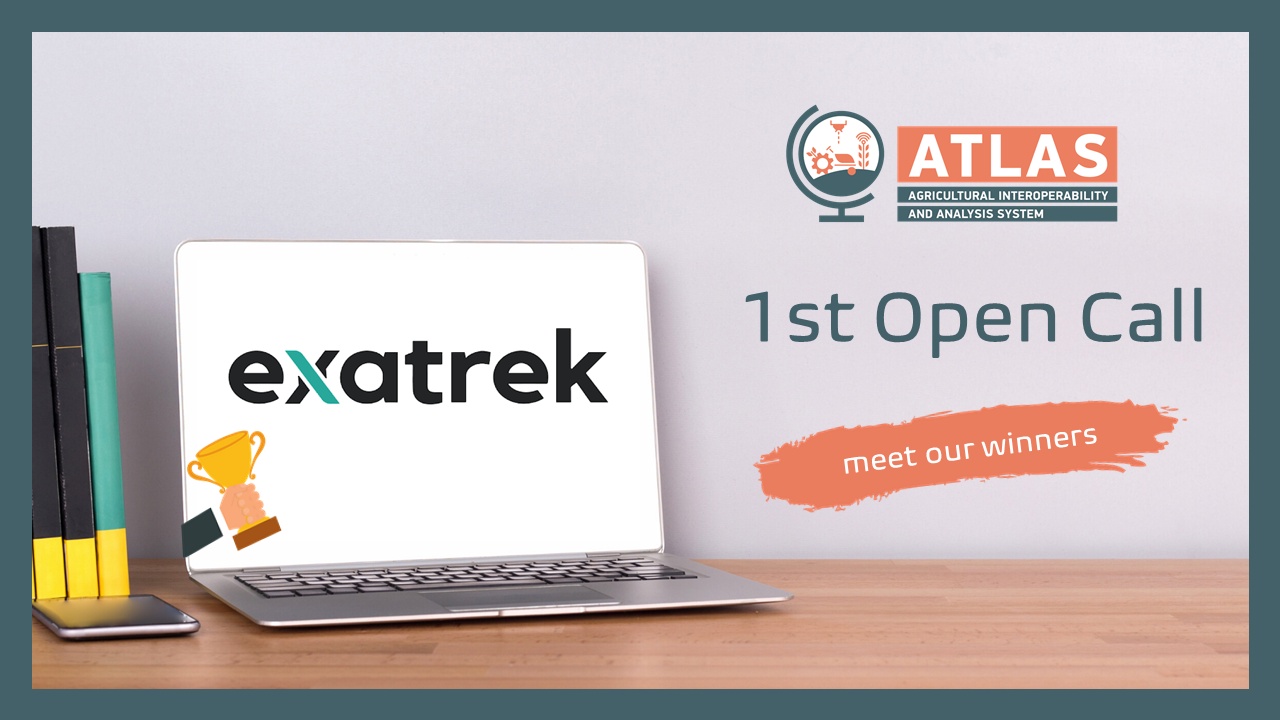ATLAS 1st open call – Meet our winners #6

Tamara Naydenova (AZO) interviews
Dietrich Kortenbruck, CEO of EXA Computing GmbH
![]() Please give us a sneak peek of your solution and the team behind it.
Please give us a sneak peek of your solution and the team behind it.
At exatrek, there are 13 of us working in hardware and software development, sales, and marketing. In the last four years, we’ve developed a solution to connect machines and implements from different manufacturers to a single system. Our latest project is about merging the resulting data with agronomical data from the ATLAS network and developing an algorithm that detects transfers of goods between different sites. By merging the data with sensor data from a weighting bridge or NIR sensor, we can even quantify transported goods in terms of their weight and nutrient content!
![]() What has been your company’s biggest challenge so far?
What has been your company’s biggest challenge so far?
Founding a company with almost no resources and creating a product that customers appreciate is the biggest challenge I can imagine. Technical problems can be solved by finding the right technology, but providing a product that’s not only a physical good, but consists of software, service, sales, and marketing as well can only be achieved by a great team with a profound understanding of customers’ needs, the technology in question, and the field they are working in. After four years and many hours of hard work, I’m glad to see we’ve achieved that goal.
![]() What do you expect from ATLAS, and how do you think it will help you develop your business case?
What do you expect from ATLAS, and how do you think it will help you develop your business case?
Even though we somehow managed to solve the connectivity problems among the different machines on a given farm, it still takes a lot of interfaces to merge the machine data with the farm’s agronomical or financial data. We hope we can use the ATLAS network to connect farmers’ machine data to other services, including farm management information systems. Besides offering benefits to farmers, this would enable us to use the data from such systems to provide services like ANCR.
![]() How and when did the idea for your company’s solution emerge?
How and when did the idea for your company’s solution emerge?
During 2020, we had many discussions with farmers and customers about their pain points. Many of them complained about the strict reporting rules for nutrient transfers, especially in Germany and other Central European countries. They suggested that machine data be used to create these reports automatically and reduce the documentation effort required.
![]() What were the main reasons why you participated in the ATLAS Open Call?
What were the main reasons why you participated in the ATLAS Open Call?
One of our main approaches is to be open to other systems in terms of exchanging data. We believe that the farmer should not be locked into certain software solutions just because there are no interfaces available. We were therefore happy to find out that there was an initiative like the ATLAS project, and that we were even able to contribute to its realisation.
![]() Finally, let’s take a quick look into the crystal ball: What’s going to happen with your company in the future?
Finally, let’s take a quick look into the crystal ball: What’s going to happen with your company in the future?
We have a vision of exatrek customers who can enjoy their free time after work because they know that they can rely on our hardware and software to do all their data acquisition, handling, documentation, and reporting for them. They can also connect their software of choice to the data so they can easily use it for accounting or smart-farming services.
For more info, visit their website.

